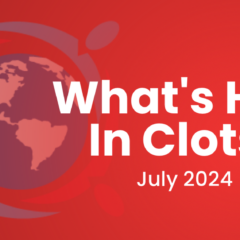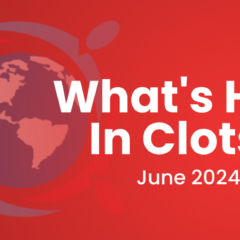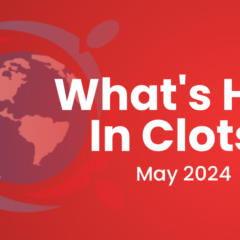Published on
Clot Chronicles: Elective Surgery after COVID-19 — Perioperative Cardiovascular Considerations
Hello, this is Risheen Reejhsinghani, and I’m a Clinical Assistant Professor in the Division of Cardiovascular Medicine at Stanford University. It’s a pleasure to be here today on Clot Chronicles where I will be discussing our recent paper: “Perioperative Cardiovascular Considerations Prior to Elective Noncardiac Surgery in Patients with a History of COVID-19.” This paper was published in JAMA Surgery in 2022 and was co-authored by Dr. Nidhi Rohatgi and Dr. Nathaniel Smilowitz. We wrote this paper because, at the time, we were entering an era when we were slowly beginning to understand more about acute SARS-CoV-2 infection – but much remained unknown about long-term outcomes. It was also a time when elective surgeries were being resumed in full swing, and the question about perioperative cardiac risk stratification came up a great deal.
Our paper was a perspective article which reviewed the available data regarding outcomes in patients with recent COVID-19 infection, as well as the interplay of this with perioperative outcomes for elective surgeries. The COVIDSurg and GlobalSurg collaboratives published an international, prospective, cohort study with over 140,000 patients. They measured 30-day postoperative mortality in patients undergoing elective and emergency surgeries.
Now, it is important to mention that this data was collected in October 2020, an era before vaccines or before the Omicron variant had emerged. The study showed that in patients with preop SARS-CoV-2 infection, mortality was increased up to six weeks after infection. This risk was irrespective of age, American Society of Anesthesiologists (ASA class), COVID-19 symptom status, or the nature of surgery. And that includes whether it was an emergent or an elective procedure.
So from there, the recommendation was to consider a delay of seven or more weeks for elective procedures in patients who had recovered from COVID-19. It’s important to note that patients who remained symptomatic, even after this period, had higher mortality. So if someone is still symptomatic at that 7-week mark, it may be prudent to delay the procedure even further.
Another paper cited in our article was the expert consensus statement from the American Society of Anesthesiologists (ASA) and Anesthesia Patient Safety Foundation (APSF), which at the time had proposed delaying elective surgeries between 4 to 12 weeks. This would depend on the severity of COVID-19 as well as underlying comorbidities. That statement has since been updated to recommend a delay of seven weeks after SARS-CoV-2 infection in unvaccinated patients who are asymptomatic at the time of surgery.
As noted in the updated ASA/APSF statement, the effect of vaccination in guiding appropriate delays between infection and surgery is largely unknown due to a paucity of data. However, any delay in surgery would need to be weighed against the risks of postponement on an individual basis with appropriate informed consent and shared decision making with the patient.
So based on the available data, our paper suggested an individualized approach to perioperative cardiac risk stratification, including assessing the baseline cardiovascular risk, surgical-specific risks, and using available validated risk stratification tools.
Additionally, the severity of COVID-19 illness and clinical status post-recovery are also important factors for consideration. When feasible, optimization of COVID-associated cardiovascular complications should also be undertaken.
So, in conclusion, while we now have more data regarding the natural history of COVID-19, including its longer-term effects, we don’t, as yet, have robust data to assess the perioperative outcomes in relation to the effects of vaccination, differences related to the Omicron or other variants, or the effects of long-term COVID syndrome. Depending on what the data show, this may impact future recommendations regarding the appropriate timing of elective surgeries after SARS-CoV-2 infection. So as with everything related to COVID-19, this is a dynamic field, and we hope for more data to make the best and safest decisions for our patients.
Thank you so much for your attention.



